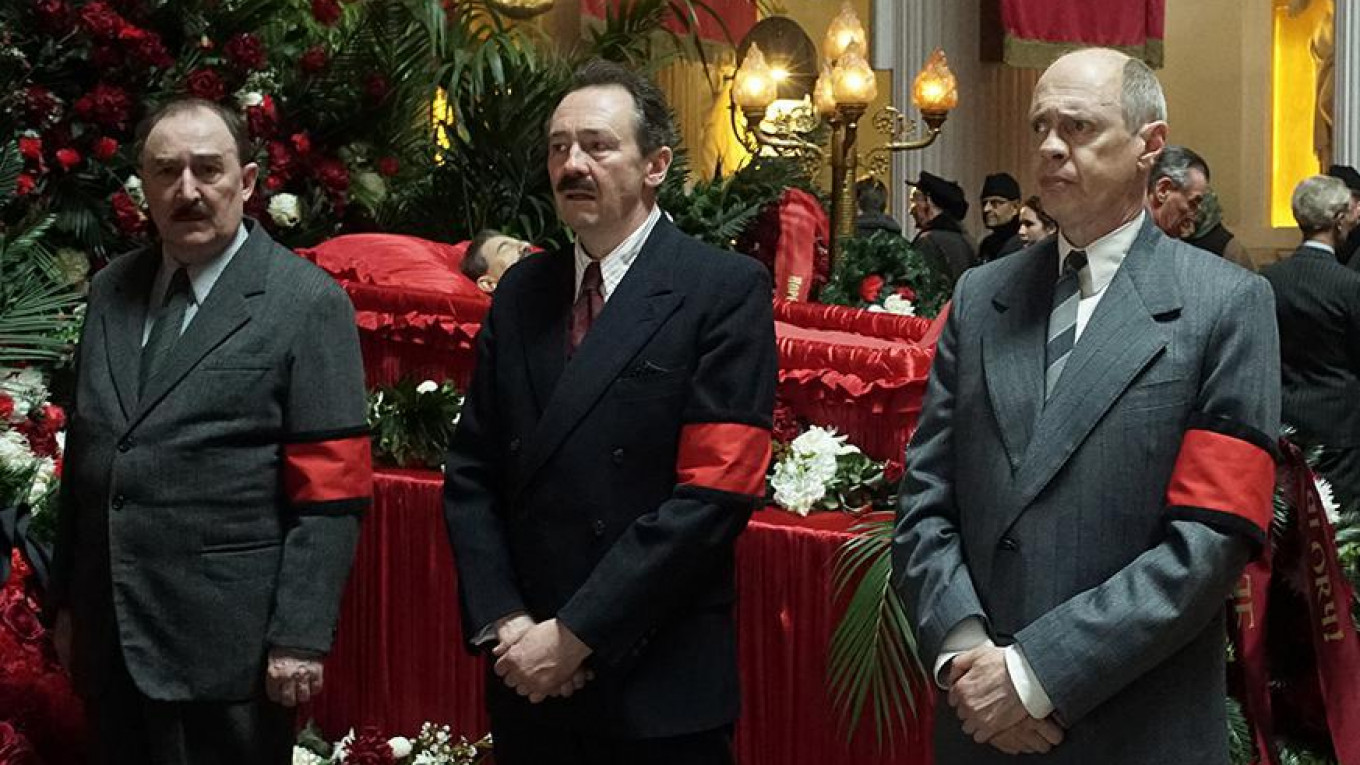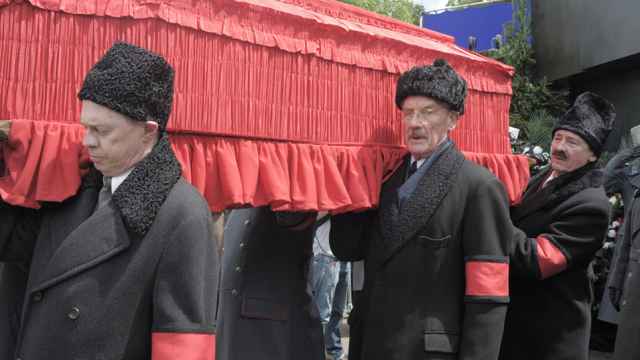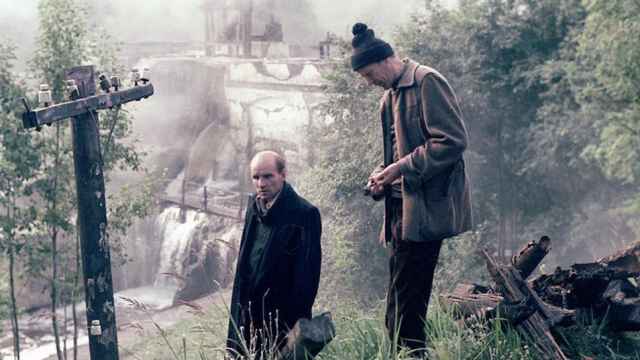The British satirical movie “The Death of Stalin” has been banned by the Russian Culture Ministry, which labeled it an extremist attempt to distort historical reality and show Russia in a negative light.
This is the just the latest film controversy to hit Russia in the last few years, as the silver screen is turning into an ideological battleground.
Here’s a look back at some of the big screen scandals of the past few years.
1. “The Death of Stalin” (2018)
The Russian Culture Ministry withdrew the screening license of the film “The Death of Stalin” two days before its premiere, citing signs of “ideological enmity.”
The film about the controversial Soviet leader is based on a graphic novel of the same name and was directed by the Scottish writer and director Armando Iannucci. The British-French political satire was shown to a closed audience of Russian cultural figures, who reportedly found it offensive and asked to revoke the screening license.
They stressed their concern over its ideological content and scenes containing extreme violence. "The film insults our historical symbols — the Soviet anthem, awards and medals," a ministry official was quoted as saying in the newspaper Novaya Gazeta. The official added that the famous Soviet general Marshal Zhukov "is depicted as a jerk."
2. “Paddington 2” (2018)
This comedy about the adventures of a talking bear is reportedly ideologically sound but suffered from an unfortunate case of bad timing.
The Culture Ministry delayed issuing a screening license to “Paddington 2” because another Russian film was scheduled to premiere on the same day, the film's distributor told the Kommersant business daily.
Media outlets have speculated that it was a strategic move to help the Russian movie “Going Vertical,” which premiered on Jan. 18. The delay in the screening of another foreign movie “Maze Runner: The Death Cure,” supports this version. Paddington fans, however, cry discrimination against foreign films.
3. “Mathilde” (2017)
“Mathilde,” a film about the love affair between the last tsar and Polish ballerina Mathilde Kschessinska, was the most scandalous movie of last year, sparking controversies and violent reactions from Russian Orthodox activists.
State Duma Deputy Natalia Poklonskaya said that director Alexei Uchitel’s film on Tsar Nicholas II offended religious believers. Activists rallied against the film and issued threats that they would start burning cinemas if they screened the biopic.
Alexei Uchitel’s studio in St. Petersburg and a movie theater in Yekaterinburg where the film was going to be shown were set on fire. The leader of the right-wing group “Christian State — Holy Rus” Alexander Kalinin told the Meduza news website that “The film is a slap in the face to history. It’s about a holy saint. It doesn’t actually matter which saint it’s about. A holy person is one of the diamond facets of our church.”
In the end, the film was shown in hundreds of theaters throughout the country without any apparent damage to national institutions.
4. “Panfilov's 28 Men” (2016)
The director of the movie “Panfilov’s 28 Men,” Andrei Shalopa, received an award for "fidelity to historical truth" for his war film. However, it was criticized by activists who claimed that the Soviet Union’s storyline about “Panfilov's men” — soldiers of the Red Army serving under the command of General Ivan Panfilov — was false.
The official story maintains that 28 men, who were awarded a title of Heroes of the Soviet Union for their brave actions during World War II, knocked out 18 tanks and 70 German soldiers before getting killed. Sergei Mironenko, the director of the Russian State Archive, published documents proving that the 28 men were invented by a war journalist. The government knew about this, but kept silent.
Culture Minister Vladimir Medinsky called those who challenged the official Soviet history "washed-up scum" and their actions “sacrilegious.”
5. “Child 44” (2015)
In Russia, showings of the British movie "Child 44" were canceled on the eve of its planned premiere. The movie depicts a Soviet secret services agent who is thwarted in his investigation of serial killings of children by the totalitarian system. Russia’s Culture Ministry criticized the film for historical inaccuracy and for the negative portrayal of the Soviet Union.
Culture Minister Vladimir Medinsky wrote that the U.S.S.R. is portrayed as a land of "physically and morally defective subhumans" where "starving children eat their weaker classmates."
However, critics of the cancelation of the screening, including Tom Rob Smith, the author of the book the movie is based on, maintained that the ministry didn’t give any specific details on how the “truth” was distorted.
6. “Leviathan” (2014)
Andrei Zvyagintsev’s “Leviathan” won the Best Screenplay award at the Cannes Festival in 2014 and was nominated for an Oscar. However, the reaction to the movie in Russia was mixed.
The film is about a man in a small town who tries to oppose the corrupt mayor when he learns about the planned demolition of his house. The figure of the mayor is seen by some critics as a projection of Vladimir Putin’s governing style and criticism of the Kremlin’s policies.
The producer of the film, Alexander Rodnyansky, told The Moscow Times that, “The reaction to ‘Leviathan’ at home was polarizing, people either loved the film and passionately supported it or hated and denounced it as part of a Western master plan to destroy the Russian nation.” For Zvyagintsev’s latest film, Rodnyansky sought private funding.
A Message from The Moscow Times:
Dear readers,
We are facing unprecedented challenges. Russia's Prosecutor General's Office has designated The Moscow Times as an "undesirable" organization, criminalizing our work and putting our staff at risk of prosecution. This follows our earlier unjust labeling as a "foreign agent."
These actions are direct attempts to silence independent journalism in Russia. The authorities claim our work "discredits the decisions of the Russian leadership." We see things differently: we strive to provide accurate, unbiased reporting on Russia.
We, the journalists of The Moscow Times, refuse to be silenced. But to continue our work, we need your help.
Your support, no matter how small, makes a world of difference. If you can, please support us monthly starting from just $2. It's quick to set up, and every contribution makes a significant impact.
By supporting The Moscow Times, you're defending open, independent journalism in the face of repression. Thank you for standing with us.
Remind me later.






